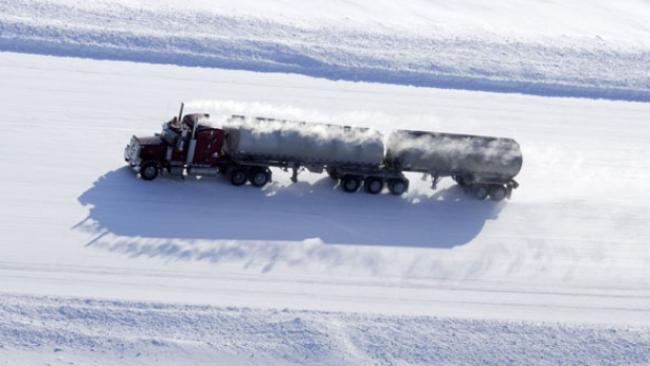Articles Menu

Sask. chiefs want prime minister, premiers to listen their climate change concerns
First Nations chiefs say climate change is softening a northern Saskatchewan ice road, leaving three reserves facing safety and access challenges.
Federation of Saskatchewan Indian Nations (FSIN) Chief Bobby Cameron says this year's warmer-than-normal winter continues to threaten an ice road connecting three First Nations in northern Saskatchewan — Hatchet Lake First Nation, Black Lake First Nation and Fond du Lac Denesuline First Nation — to the south.
"This year the unbelievably warm winter we've had didn't make the ice road safe enough to travel although people have been travelling on it," Cameron said.
"There's been a few trucks that have sunk in so it's a safety item. We don't want our people in the north to lose their lives because of an ice road being unsafe."
This week Cameron, alongside First Nation chiefs, plan to attend a climate change meeting in Vancouver on Thursday, where they will continue to advocate and lobby for a year-round grid road in northern Saskatchewan, so people in the Hatchet Lake area no longer have to rely on an ice road to connect them to the south.

Prime Minister Justin Trudeau and premiers met at the Canadian Museum of Nature in Ottawa on Monday, Nov. 23, 2015. The first ministers meet again in Vancouver on Thursday to discuss climate change. (Sean Kilpatrick/Canadian Press)
But that comes with a hefty price tag.
"Studies have shown that it's going to cost anywhere from $70 [million] to $80 million to build this grid road because years ago it was started, but for some reason all construction stopped. Now the reality is the road has to be completed for safety and accessibility," he said.
Despite truckers taking risks on the ice road, Cameron said in many cases crucial supplies aren't making it to the three First Nations.
"It's really hard and difficult to get supplies in and out of the community whether it's home supplies, food, gas; the necessities of life."
Thursday's meeting is expected to be contentious one with topics including carbon pricing and other proposals for fighting climate change, with Saskatchewan Premier Brad Wall already saying he's not signing anything that would result in a new "carbon tax."
The FSIN said the meeting should focus on the immediate impact that climate change is having on the environment.
"We want to work with the various levels of governments to build a road that will meet the needs of northern Saskatchewan residents," said Bob Merasty, vice-chief of the FSIN.